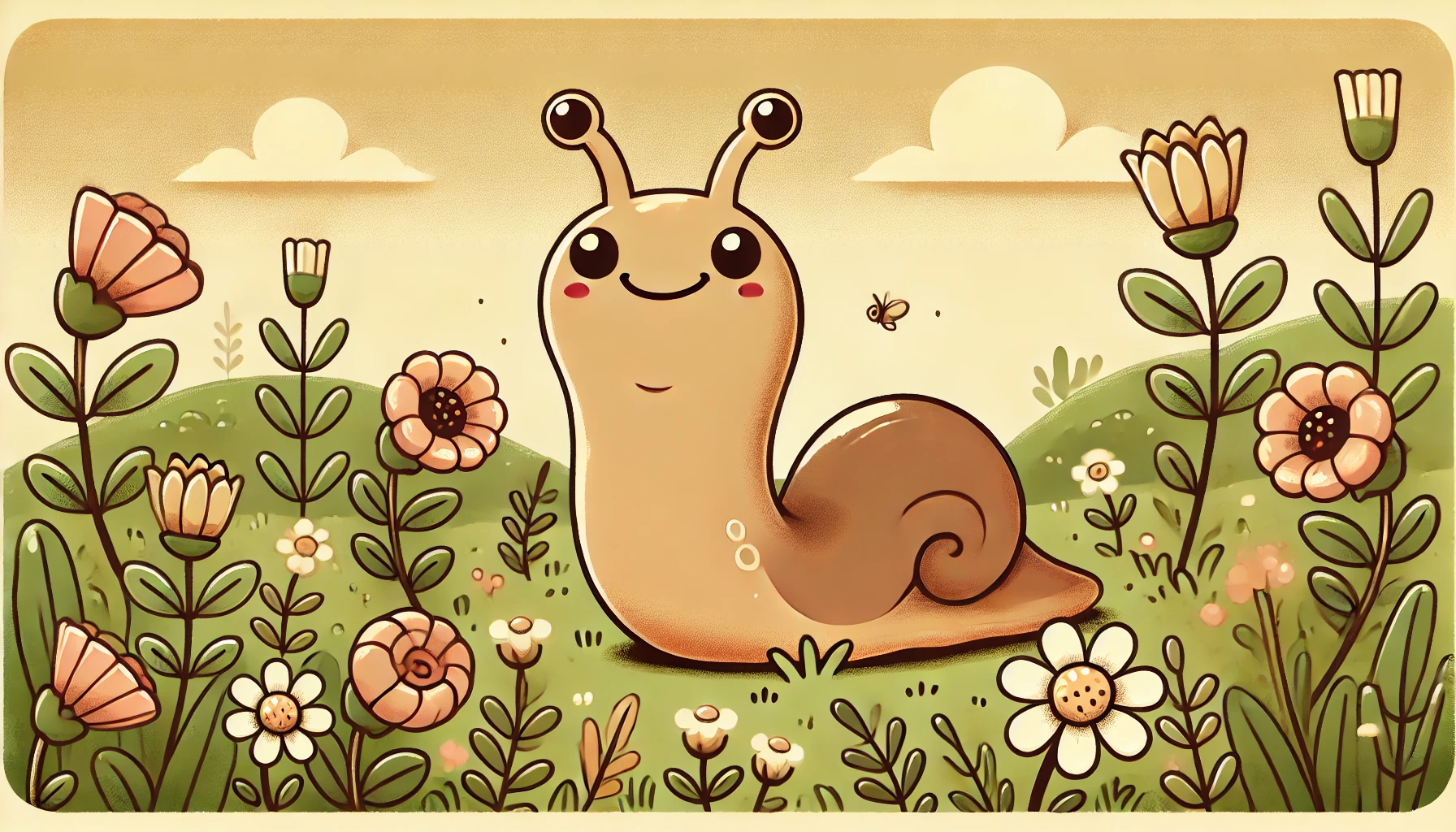Understanding and Overcoming the Fear of Slugs: Conquering Molluscophobia
Are you one of the many people who shudder at the sight of a slug? Does the thought of encountering these slimy creatures in your garden fill you with squeamish dread? Can you simply not find a stick that’s long enough? Hopefully, you know you’re not alone. The fear of slugs is known as molluscophobia and is far more common than you might think.
In this comprehensive guide, we’ll explore the ins and outs of slug phobia, the causes, and most importantly, the ways to overcome it. Whether you’re looking to tend your garden without anxiety or simply want to understand your fear better, you’ve definitely come to the right place.
What is Molluscophobia?
Molluscophobia is the intense and irrational fear of slugs and other molluscs. While many people find slugs unpleasant, those with molluscophobia experience extreme anxiety or panic when encountering or even thinking about these creatures1.
Common Symptoms of a Fear of Slugs
- Rapid heartbeat and sweating
- Shortness of breath
- Trembling or shaking
- Nausea or dizziness
- Intense desire to flee
- Avoidance of gardens or damp areas
Understanding the Root of Slug Fear
The fear of slugs can stem from many factors:
Texture aversion: Many find the slimy texture of slugs repulsive.
Childhood experiences: Negative encounters with slugs during childhood can lead to lasting fear1.
Cultural influences: Some cultures view slugs as pests or carriers of disease.
Evolutionary response: Our ancestors may have developed an aversion to slimy creatures as a survival mechanism.
Debunking Myths About Slugs
Let’s address some common misconceptions about slugs:
- Slugs are not dangerous to humans
- They don’t carry diseases harmful to people
- Slugs play a vital role in ecosystems as decomposers
- Most garden slugs are harmless to plants, with only a few species causing damage
Overcoming the Fear of Slugs
Conquering your fear of slugs is possible with the right approach. Here are some strategies to help you:
Education and Exposure
Learn about slugs: Understanding these creatures can help reduce fear. Did you know that slugs have been around for over 500 million years?
Gradual exposure: Start with looking at pictures of slugs, then progress to watching videos. Eventually, try observing slugs in a controlled environment.
Cognitive Behavioural Therapy (CBT)
CBT can help you identify and change negative thought patterns associated with slugs. A therapist can guide you through this process, helping you develop practical ways of dealing with your phobia.
Relaxation Techniques
Practise deep breathing or mindfulness when thinking about or encountering slugs. These techniques can help manage anxiety symptoms.
Positive Associations
Try to create positive experiences related to slugs. For example, learn about their ecological importance or their fascinating biology.
Professional Help
If your fear significantly impacts your daily life, consider seeking help from a mental health professional specialising in phobias2.
How to cope with Slugs in Your Garden
For those working to overcome their fear, here are some tips for coexisting with slugs:
- Use natural slug deterrents like coffee grounds or eggshells
- Create barriers around plants using copper tape
- Encourage natural predators like birds and hedgehogs
- Remove slugs humanely using a ‘slug pub’ (a shallow dish of beer)
A Slugs Part in Nature’s Diversity
Remember, slugs are an integral part of our ecosystem. By overcoming your fear, you’re not just improving your quality of life – you’re also gaining a deeper appreciation for the natural world around you.
The Role of Exposure Therapy in Overcoming the Fear of Slugs
Exposure therapy is a key component in treating specific phobias like molluscophobia. This treatment involves gradually increasing your exposure to slugs in a controlled and safe environment.
Your therapist might start by asking you to look at pictures of slugs, then progress to watching videos. As you become more comfortable, you might observe slugs from a distance, and eventually, if you’re ready, even touch one.
The goal is to help you gain control over your phobia by showing your brain that slugs aren’t actually dangerous. Over time, your anxiety response should decrease.
Medication Options for Coping with Molluscophobia
While therapy is usually the first line of treatment for phobias, in some cases, medication might be recommended to help manage anxiety symptoms. These can include:
- Antidepressants (SSRIs)
- Beta-blockers
- Anti-anxiety medications
Always consult with a healthcare professional before starting any medication regimen.
Self-Help Strategies
In addition to professional treatment, there are several self-help strategies you can employ:
- Mindfulness: Practise being present in the moment without judgement.
- Relaxation techniques: Try progressive muscle relaxation or deep breathing exercises.
- Physical activity: Regular exercise can help reduce overall anxiety levels.
- Educate yourself: Learn about slug biology and ecology to demystify these creatures.
The Importance of Support
Don’t underestimate the power of a strong support system. Share your fears with friends and family, or consider joining a support group for people with phobias1. Knowing you’re not alone in your struggle can be incredibly comforting and motivating.
Celebrating Progress Through and Beyond the Fear of Slugs
Remember, overcoming a phobia is a journey, not a destination. Celebrate each small victory along the way, whether it’s looking at a picture of a slug without panicking or successfully walking through your garden after rain.
With time, patience, and the right strategies, you can learn to manage your fear of slugs and reclaim your enjoyment of nature.
If you’re struggling with molluscophobia or any other animal phobia, don’t hesitate to reach out for help. Professional support can make a world of difference in your journey towards overcoming your fear.
FAQ
Can slugs hurt humans?
No, slugs are not harmful to humans. They don’t bite, sting, or carry diseases that affect people.
How common is the fear of slugs?
While exact statistics are hard to come by, molluscophobia is relatively common, especially in areas where slugs are prevalent.
Can I suddenly develop a fear of slugs?
Yes, phobias can develop at any age, often triggered by a negative experience or learned behaviour.
Are there any benefits to having slugs in my garden?
Yes, slugs play a crucial role in decomposing organic matter and recycling nutrients in the soil.
How can I explain my fear of slugs to others?
Be honest about your feelings and explain that phobias are real and can be intense. Most people will understand and be supportive.
Is it possible to completely cure molluscophobia?
While complete ‘cures’ are rare, most people can significantly reduce their fear and learn to manage their reactions effectively.
Can hypnotherapy help with the fear of slugs?
Some people find hypnotherapy helpful in managing phobias, including molluscophobia. It’s worth discussing with a qualified therapist.

